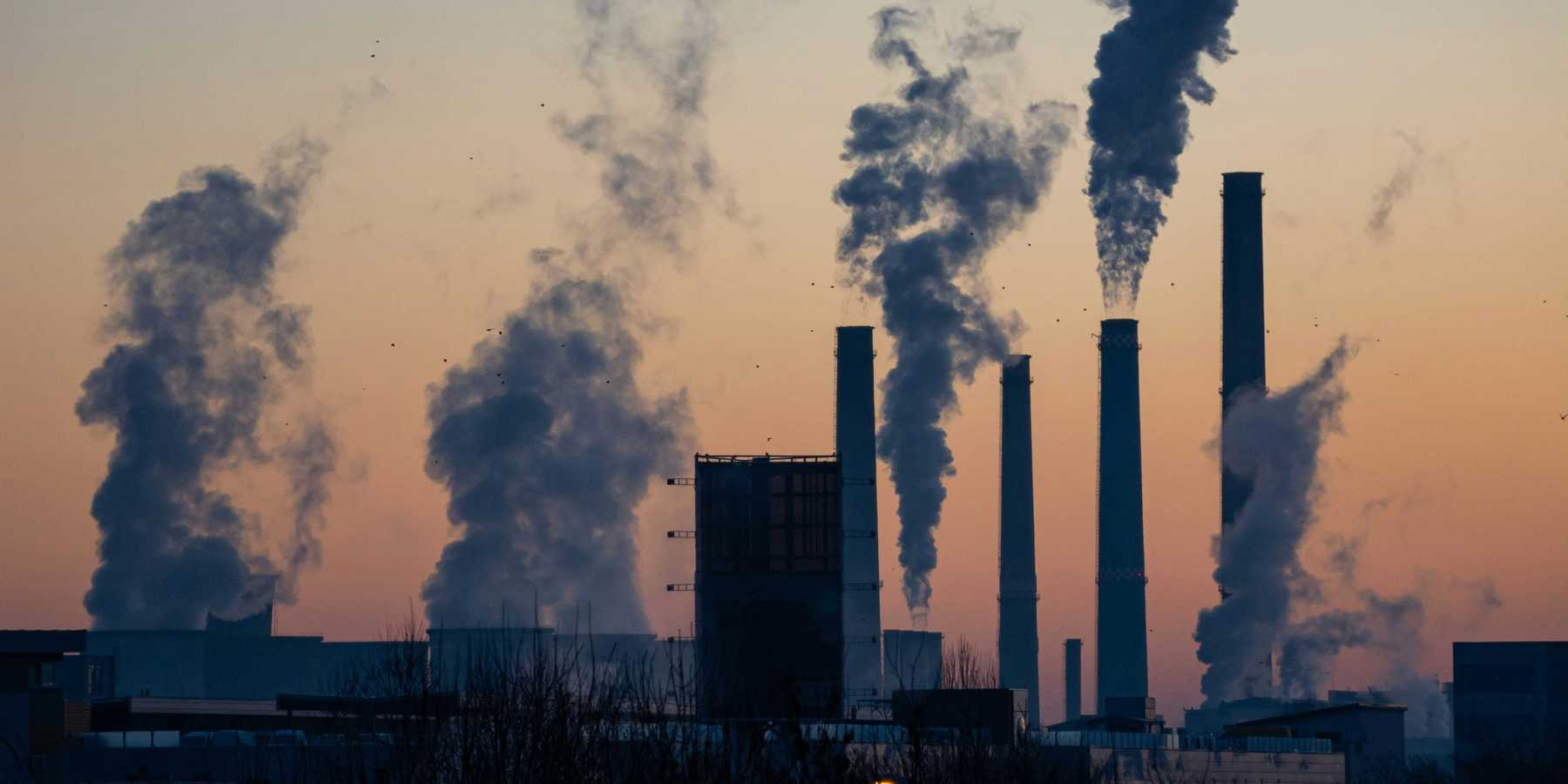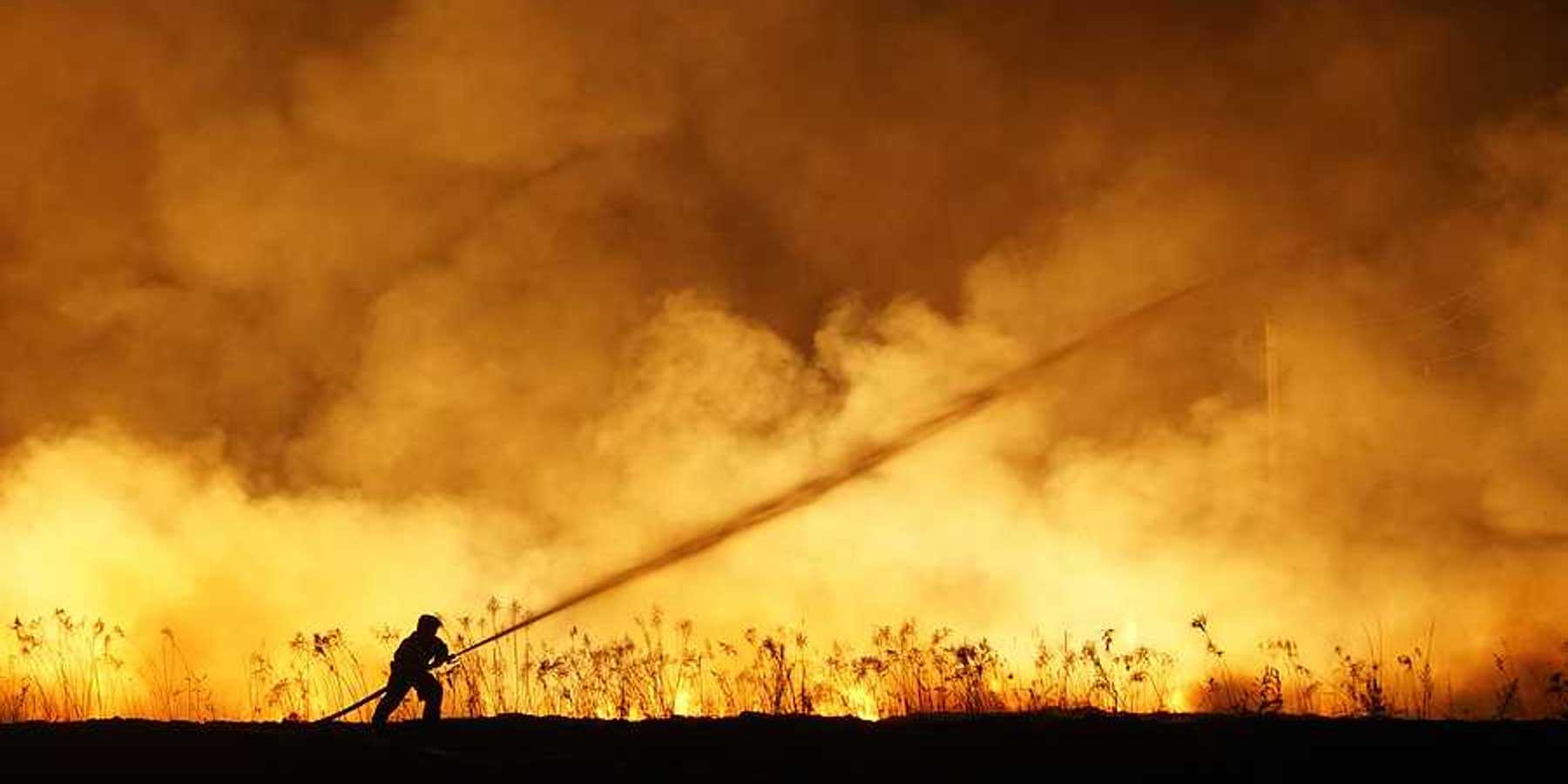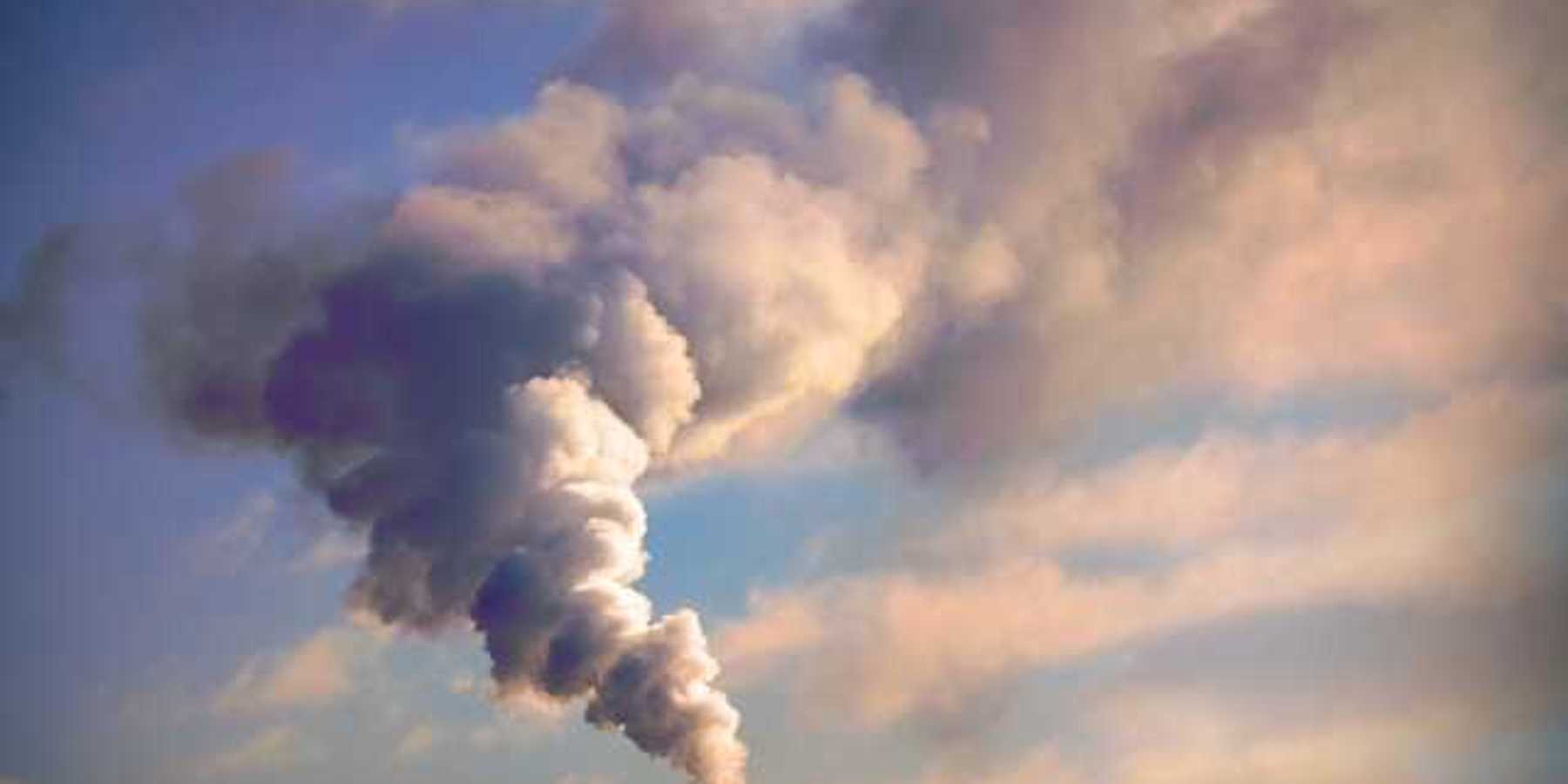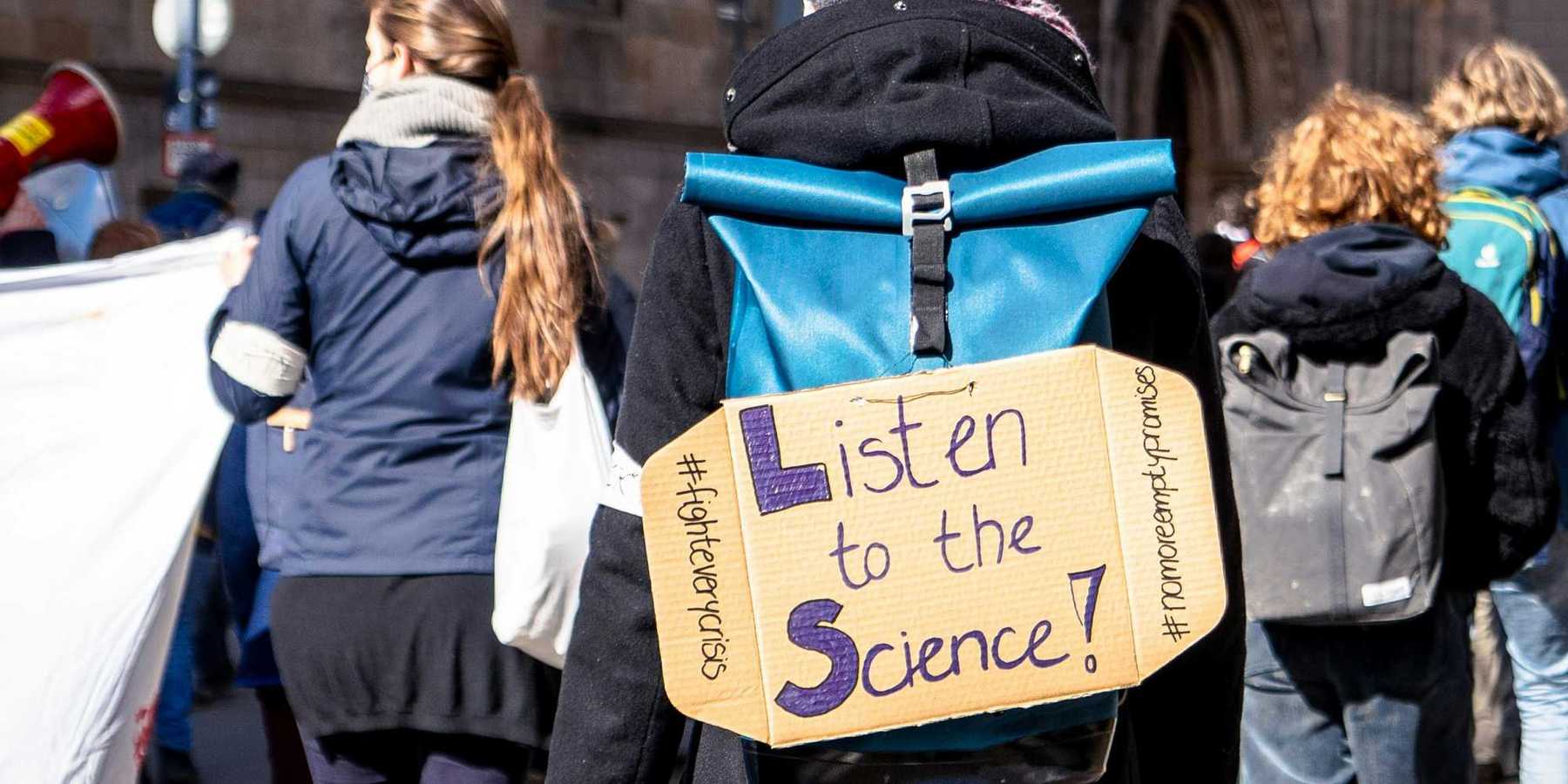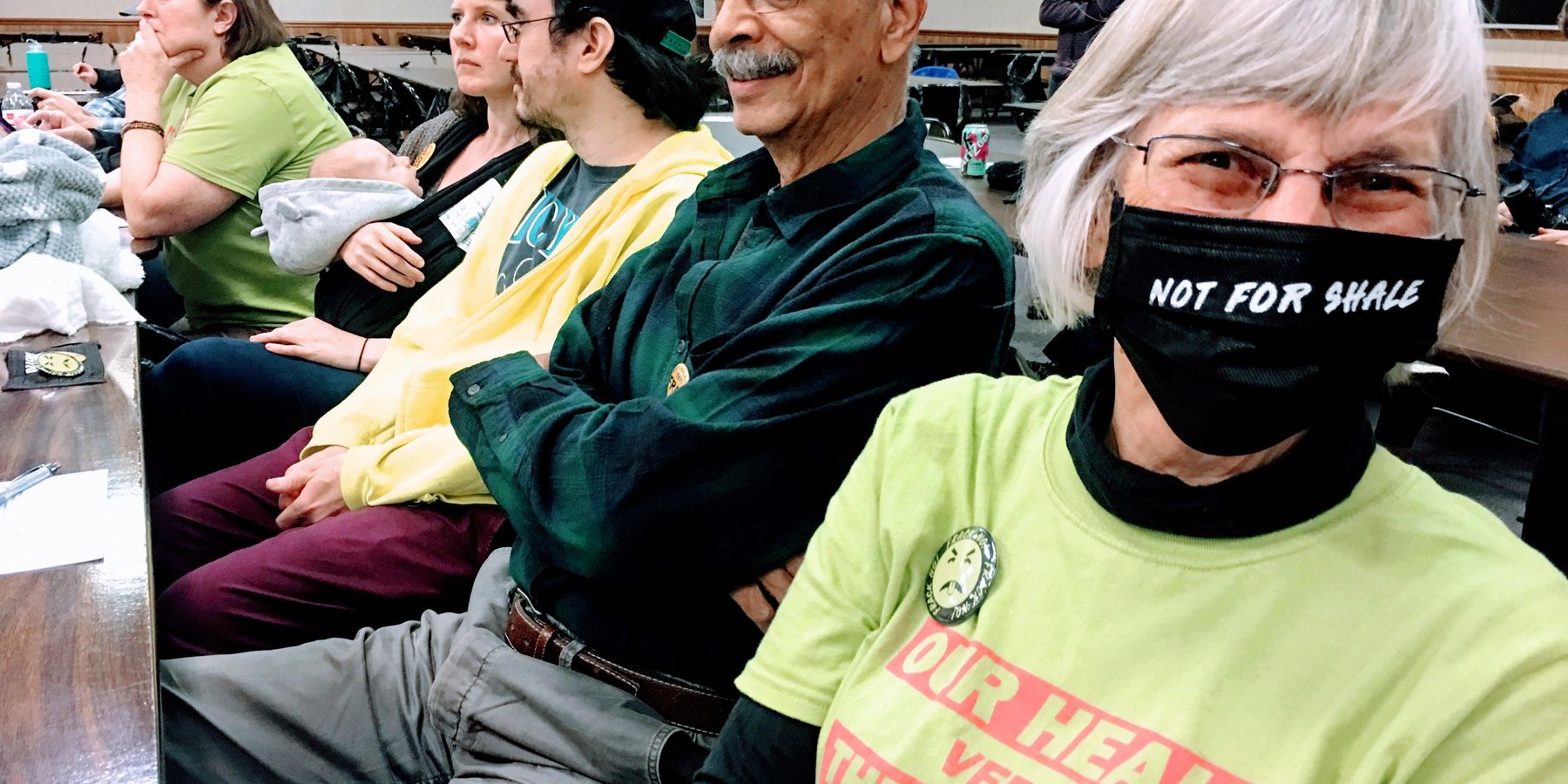
After a decade of research, here’s what scientists know about the health impacts of fracking
"This should be of serious concern to policymakers interested in protecting public health."
Fracking has been linked to preterm births, high-risk pregnancies, asthma, migraine headaches, fatigue, nasal and sinus symptoms, and skin disorders over the last 10 years, according to a new study.
Fracking, also known as hydraulic fracturing, is a process of extracting oil and gas from the Earth by drilling deep wells and injecting a mixture of liquids and chemicals at high pressure.
The study, which was published in the Oxford Research Encyclopedia of Global Public Health in February, looked at several hundred scientific articles about the community and health impacts of fracking. The researchers focused on the design of those studies to ensure that the ones they included in their study were scientifically valid, then summarized what's been learned about the industry in the last decade.
"What we found pushes back against the narratives we often hear that say we don't know enough about the health impacts yet," Irena Gorski, co-author of the study and an environmental epidemiology doctoral candidate at the Johns Hopkins Bloomberg School of Public Health, told EHN.
"We have enough evidence at this point that these health impacts should be of serious concern to policymakers interested in protecting public health," Gorski said.
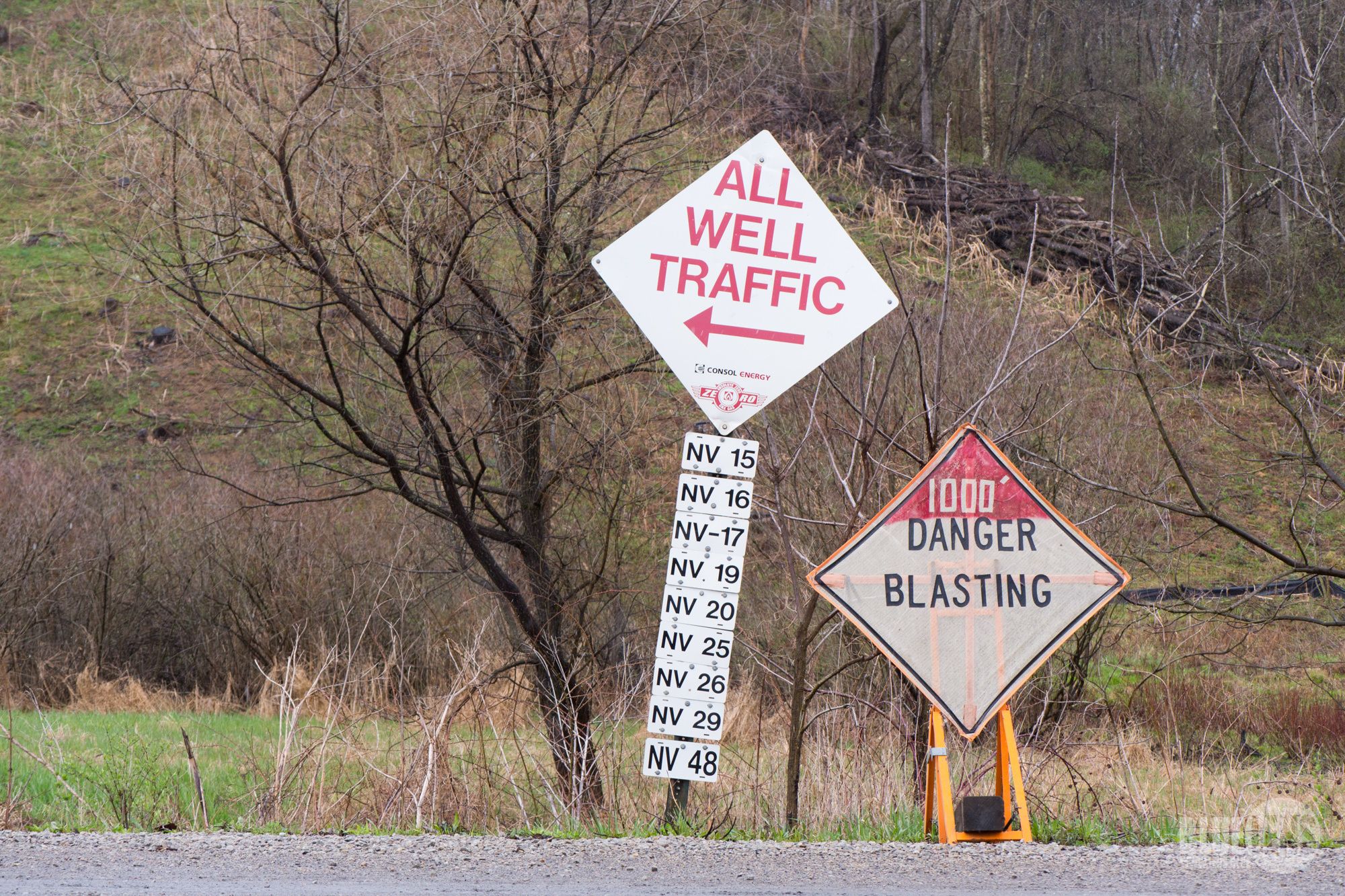
She added that, while they found a number of documented health impacts, the ones with the most evidence for concern are negative impacts on pregnancy and birth outcomes.
Evidence suggests women living closer to fracking have increased odds of having a baby with lower-than-average birth weight; of having a high-risk pregnancy; or having a baby with a low infant health index.
"We were looking for repeat findings," Gorski said, "and there are six studies on birth outcomes, which each found associations between adverse outcomes and unconventional natural gas development."
Gorski and her colleagues also investigated the extent to which the studies they reviewed included metrics like the proximity of wells to residents, the phase of fracking the wells were in at the time of the study (active drilling versus ongoing production, for example), and the likelihood that non-fracking activities impacted their findings.
"In these epidemiological studies, researchers do a lot to control for bias and consider all the confounding factors that could lead them to find false associations, and they adjust for them to minimize the impact on their findings," Gorski explained. "Basically, they're trying to see if their findings go away if they eliminate certain factors. In the studies we included, they're finding that they don't, which adds to the evidence that this is a concern for public health."
The researchers noted in the study that it's still too early to study some health impacts, like cancer and neurodegenerative diseases, because they take a long time to develop.
The researchers also looked at studies on the industry's effects on drinking water, air pollution, land use, earthquakes, and climate change to assess how those impacts might also affect health.
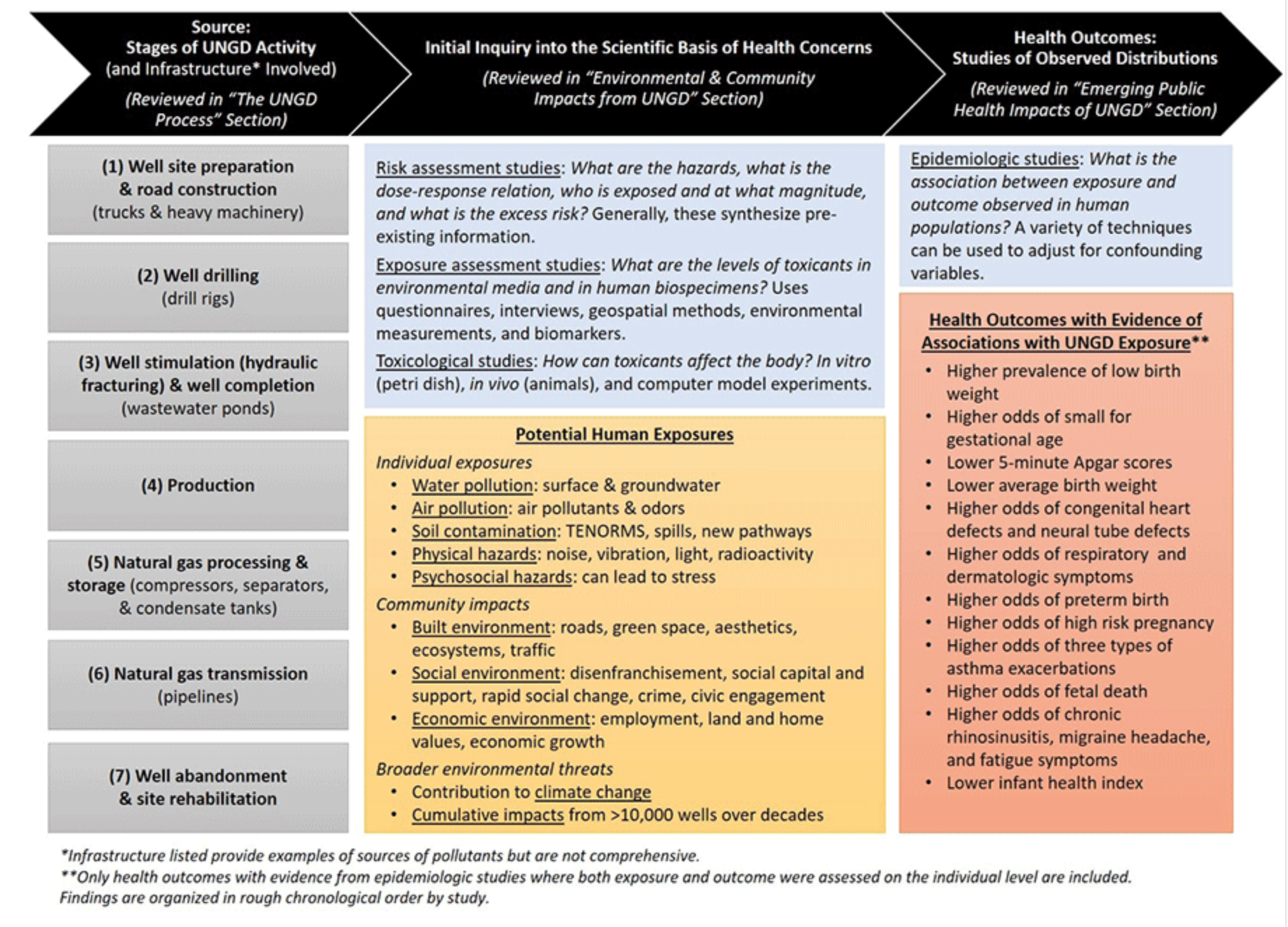
They found evidence that water pollution, air pollution, and soil contamination caused by the industry have been linked to adverse health impacts through both exposure to toxic chemicals released during fracking, and through increased stress and anxiety caused by the increased light, noise, and truck traffic associated with fracking.
They also found some surprising evidence of the industry's effect on climate change.
"As a fossil fuel, natural gas extraction and use is contributing to climate change, of course," Gorski said, "but before conducting this study, I didn't realize the amount of of evidence we have that it may be even worse than coal."
She pointed to several studies suggesting that if fugitive emissions of methane from the equipment used to transport and store natural gas exceed more than 3 percent, natural gas use would have a greater climate change impact than coal. She also said there's evidence to suggest that the industry's methane emissions well exceed that 3 percent.
"We included this in our study because climate change has its own contributions to health impacts," she added. "These indirect impacts will take longer to appear than the direct health impacts, but they have the potential to be significant."
The impacts of climate change on health include heat-related illness and death, increased respiratory diseases, increases in insect-borne diseases, increased mental health impacts from forced migration and civil conflict, and health impacts from severe weather events.
A separate forthcoming study, slated for publication in the journal Ecological Economics, found that ethnic minorities, especially African Americans, disproportionately live near fracking wells.
Gorski said we should require more evidence of the industry's societal benefits, as opposed to requiring more evidence of its negative impacts, to determine the pace of expansion for the industry.
"Some people are pushing for new studies on exactly how exposure happens in order to believe the evidence that these health impacts exist," Gorski said. "That's something scientists can potentially tease out, but we already know these health impacts exist, and I think there's already more than enough evidence for policymakers to take action."

